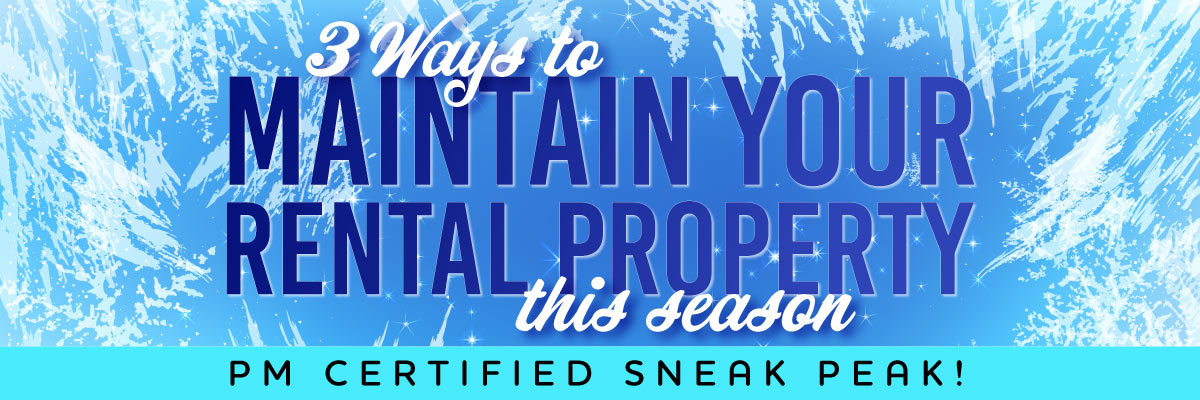3 Tips From PM 106: Maintain Your Property Throughout the Season
January 17, 2023

You prepared your rental properties for cold and inclement weather, but how can you keep them maintained throughout the season and make sure you have everything you need? We have the information for you–right from our PM Certified 106: Fix It Up class!
Vacant Properties
We know–you hope the vacant rental properties are few and far between, but when they do pop up, how should you maintain them (especially in the winter!)? According to the Virginia REALTORS® property management agreement, the owner must keep utilities on when the dwelling is vacant, including between tenants. The managing agent must also take precautions to safeguard the rental property while vacant. Some other tasks to keep in mind when maintaining a vacant rental property are regular inspections, checking in on home temperature settings, keeping up with snow removal and de-icing, general landscaping or gutter cleaning, chimney cleaning, and even the potential for break-ins or squatting.
Maintenance Reserve
Unplanned projects or repairs will arise and, more than likely, a lot of them can happen during the colder months. It’s important to decide (ahead of time) whether you will or will not enter into agreements in the name of the owner for all necessary repairs, maintenance, and other services to and for the rental property. Additionally, the Virginia REALTORS® property management agreement requires the owner to set up a maintenance reserve account. This account is held in an escrow account for any property expenses. This is vital to making sure you are able to pay for any unforeseen repairs that come up.
Routine Maintenance and Inspections
It is always important to keep up with routine maintenance and inspections, but even more so during this time of year. Some possible tasks you may want to take care of are (but are not limited to) HVAC servicing, air filter replacement, cleaning dryer vents, winterization of irrigation, closing a pool, changing water filters, and draining hot water heaters.
Routine inspections help provide an understanding of what needs to be changed or repaired when the tenant vacates the unit. They can also help provide insight to future purchases that may need to be made. Lease violations may also be discovered during inspections, so be sure to do them regularly. Remember, you always need to give proper notice before an inspection so the tenant knows to expect you in their home. Keeping up with these inspections and maintenance can help keep your rental property safe and functioning well all year long.
Make sure you stay on top of maintenance tasks so you don’t get bogged down this winter. For more information on rental property maintenance or rules in the property management agreement, don’t miss our virtual class, PM 106: Fix It Up on January 24th, 9:00 a.m. – 1:00 p.m.
You might also like…
Make a Plan to Elevate YOUR Career During Designation Awareness Month
By Virginia REALTORS® - November 2, 2023
When you work towards a designation or certification, you have the power to build trust with clients, stay competitive, and thrive in your industry. Your clients will know… Read More
Celebrating Virginia REALTORS® Graduates
By Richardson, Cailin - January 25, 2023
Virginia REALTORS® wants to congratulate all the graduates that completed work in the REALTOR® Institute (GRI), PM Certified, and Broker Premier programs during 2022. Completion of the coursework… Read More
Important Update Regarding GRI
By Virginia REALTORS® - December 13, 2022
The GRI program has been going strong since it was redeveloped in 2015. But business has changed, and the market is moving in new ways. To keep our… Read More